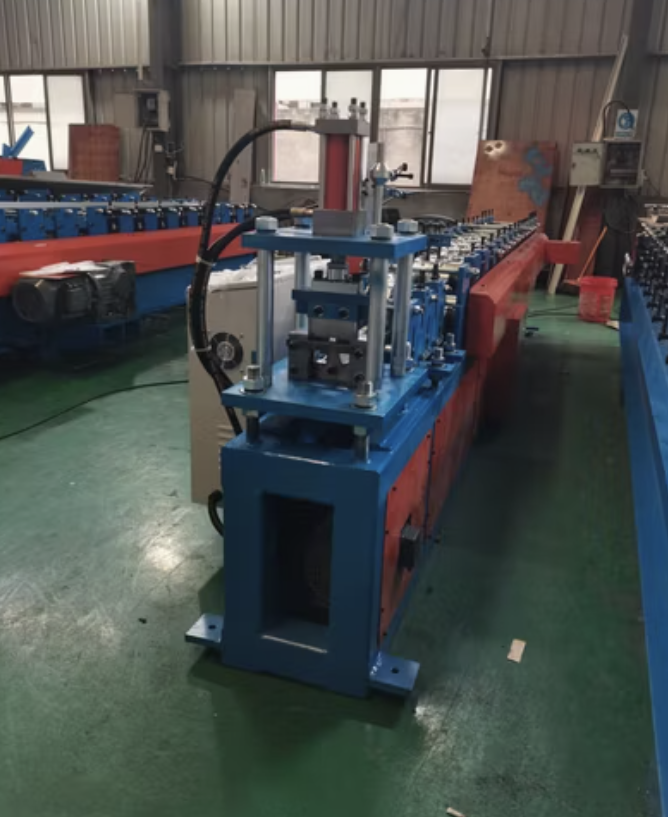To express an interest in this machine please submit the form below.

Not Sure What Machine You Need?
Select Your Profile, We'll Match It
Choose your desired profile drawing, and let Machine Matcher connect you with the best roll forming machine tailored to your needs.
Browse Profiles


A ceiling channel roll forming machine is a highly specialized equipment designed for the efficient production of ceiling channels, which are essential components in modern construction, particularly for suspended ceiling systems. These machines are engineered to form precise, durable metal profiles that provide structural support for ceilings in residential, commercial, and industrial settings. The machine processes raw material, usually galvanized steel or other corrosion-resistant metals, through a series of rollers that gradually bend and shape the material into the desired ceiling channel profile.
The ceiling channel roll forming machine is typically installed in a dedicated space with a strong foundation to support the machine's weight and prevent movement during operation. Professional installation services are often recommended to ensure that the machine is correctly calibrated and aligned for precision. Following installation, a testing period is conducted to verify that the machine performs accurately within specified tolerances.
Regular maintenance is essential to prolong the life and efficiency of the ceiling channel roll forming machine. Key maintenance tasks include:
Q1: What materials can be used with a ceiling channel roll forming machine?
A1: The machine typically processes galvanized steel, aluminum, and stainless steel, which offer durability and corrosion resistance suitable for ceiling channel applications.
Q2: What is the production speed of a ceiling channel roll forming machine?
A2: The machine operates at speeds of 15-25 meters per minute, depending on factors like profile complexity and material thickness.
Q3: Can the machine produce different sizes of ceiling channels?
A3: Yes, the machine can be adjusted to create different profile widths, typically in the range of 25-50 mm, allowing flexibility for various ceiling channel specifications.
Q4: Is an automatic punching system available?
A4: Yes, an optional hydraulic punching system can be integrated into the machine to add holes to the ceiling channels, depending on project requirements.
Q5: What type of maintenance does the machine require?
A5: Regular lubrication, cleaning, hydraulic system inspection, and periodic PLC updates are recommended to keep the machine running optimally.
Q6: Is professional installation required?
A6: Yes, professional installation ensures that the machine is set up correctly, calibrated, and tested for accurate performance.
Q7: Does the machine offer any remote operation capabilities?
A7: A remote PLC system can be installed as an optional feature, enabling remote monitoring and troubleshooting.
Copyright 2026 © Machine Matcher.